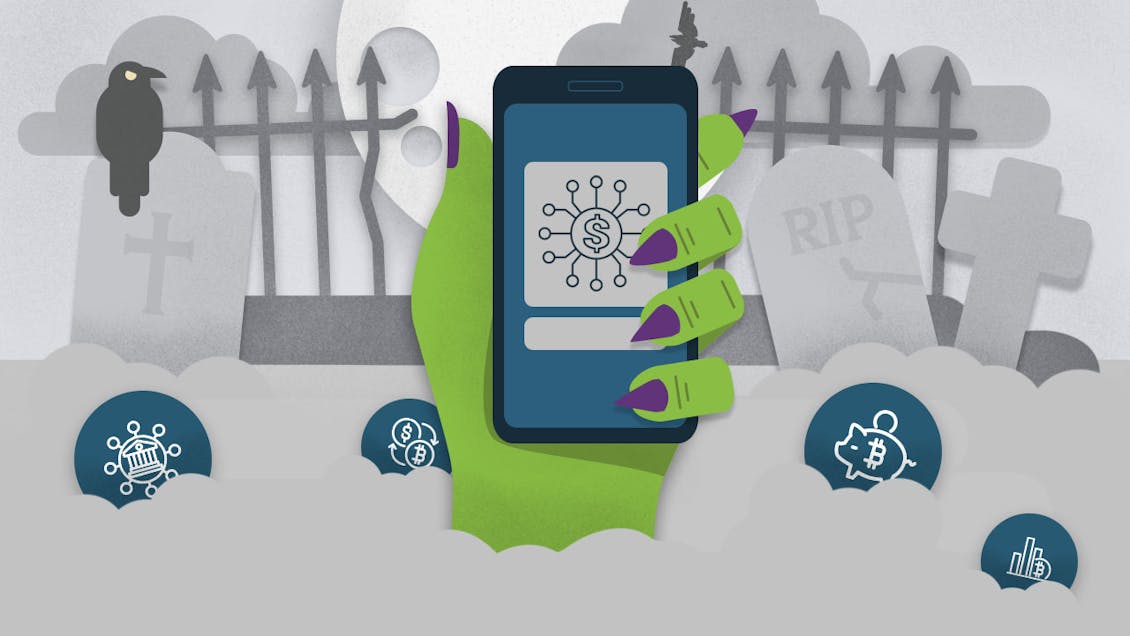Fintech is dead. Long live fintech.

More than ever, now is the time to invest in human-centered fintech
The rapid growth in the financial services space hasn’t made handling money all that much easier or the experience much better. (Just think about the last time you waited in line to pay for something—chances are, it was very recent.) Despite the range of emerging tech, apps, and services, no big bank, startup, or tech company has designed a seamless UX or UI. At least not yet.
Still, there are some signs that things are changing slowly. Apple Pay has enabled people to leave home without a physical wallet, ride public transportation, and make purchases at most retailers with comfort and security. On the other hand, big banks with legacies and long-standing reputations can fail to effectively notify customers who have been exposed to fraud.
Or take the explosion of NFTs. Prospective buyers can’t purchase these digital assets like they would a greeting card at the grocery store (something that’s even simpler with mobile services like Apple Pay). Instead the process to buy one takes various downloads and transfers. Those barriers signal there’s more development to come.
The power struggle between fintech and traditional banks has impacted how businesses and individuals can spend, save, borrow and invest money plus interact with customers. Where older institutions have been reliable but unable to modernize fast enough, newer players that experienced a surge during Covid are now struggling to stay afloat. With fintech on the brink of upheaval, as newer digital-first platforms fail or scale back, potential interception from Big Tech waits in the wings.
There’s an arms race happening, and it’s unclear who will win. As inflation soars and a potential recession keeps investors and customers occupied, here are some remaining tensions and potential solutions in the fintech space.
The fintech boom is slowing
Lots of fintech firms that popped up in recent years overpromised and as a result are undergoing a course correction in the face of a slowing economy and rising interest rates. Look at Brex, a roughly five-year-old fintech company, which targeted its services toward startups. The company recently scaled back on that commitment to small-to-medium businesses and instead laid out “criteria” to use its service, which includes the receipt of venture capital funding.
Despite all of the promise and pace of change in fintech, companies and individuals are still hungry for a new or improved product to streamline and enhance their financial experiences. . But the existing fintech firms, many of which are in a tight spot, might not be the answer. They may be more likely to merge or be acquired by more established banks like JP Morgan Chase or deep-pocketed companies like Apple that are launching increasingly savvy products.
The fintech industry still lacks a central destination or hub
The need for a “super app” that streamlines financial activity poses an opportunity for major companies in the U.S., such as PayPal as well as Apple and Google, to fill in the existing gaps. Other smaller platforms like SoFi Invest are already doing some of that work: the app offers an intuitive interface for beginners and the ability to invest in stocks, ETFs, and crypto, and move money between accounts. Apps with big international user bases such as WeChat Pay and Alipay have better figured out how to design a digital financial square where businesses and people can feel comfortable making transactions digitally or in person. Whereas people often have to go through multiple logins to stay organized on regular transactions, insurance, investments, assets, and more, the future of fintech will enable a more connected and secure experience.
Fintech needs to strike a balance on how to best serve customers
No matter how shiny the packaging, banking is banking, and companies must find a way to communicate that reality to their customers. Any new financial product is still subject to the same old market forces, and that truth should be clear through marketing as well as UX and UI.
Younger investors might expect more stability and guaranteed gains through startups like Acorns, which makes micro-investing easy, and feel less inclined to ride out unavoidable downturns in the market. So they abandon the platforms over a condition that any long-term investor generally has to accept. Plus, digital processes shouldn’t always be frictionless. They should match the level of risk involved. For instance, getting into margin investing on the app Robinhood—which can lead to losses greater than the starting deposit—shouldn’t be as simple as starting out on the basic, free version of the app. Companies must integrate the reality of these risks into their UI and UX to avoid potentially major problems.
So where is this all going?
As fintech evolves, Modus remains focused on ensuring platforms deliver the best available user experience. Our work with fintech retailer Payomatic streamlined some of the challenges customers experience, from managing multiple profiles to inefficient shopping in-person or online, and will continue to guide businesses with similar problems through the next frontier of financial services.
Whereas established names in finance often have more trust, the newer entrants have attracted the mobile-first generation. The overlap in these providers’ financial services will continue to play out and converge in coming years, and which newcomers survive remains to be seen. One thing is clear: Big Tech companies have so much overhead to potentially own solutions where newer digital firms fall short. Will big banks be able to shed their baggage to make the most of the moment?



